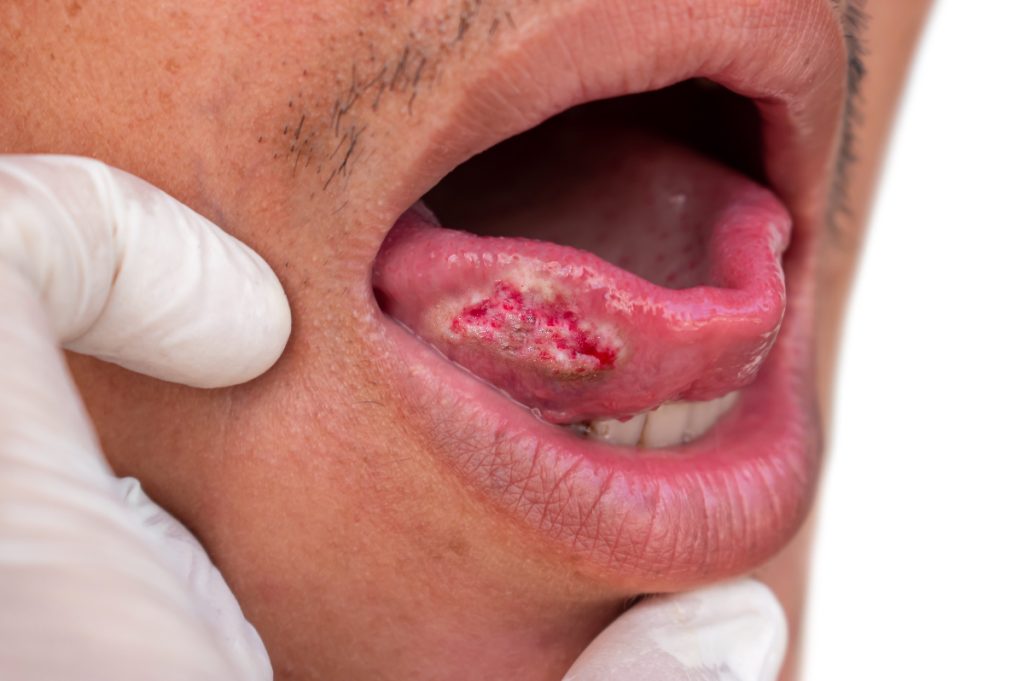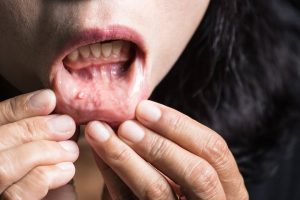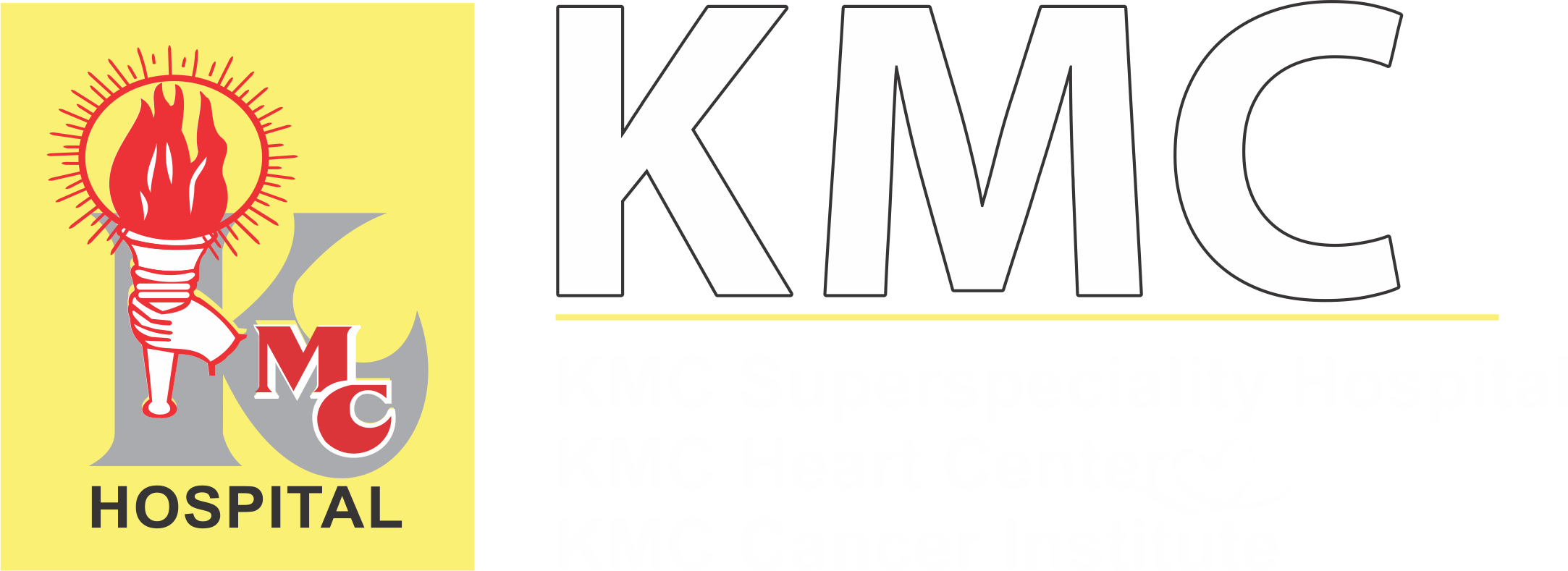Mouth cancer, also known as oral cancer, refers to cancer that develops in the tissues of the mouth or throat. It can affect the lips, gums, tongue, the roof or floor of the mouth, and the inner lining of the cheeks. This type of cancer is part of a group known as head and neck cancers.
Symptoms of Mouth Cancer:
- Persistent mouth sores or ulcers that don’t heal
- Unexplained bleeding in the mouth
- Painful or swollen tongue
- Difficulty swallowing or chewing
- A lump or thickening in the mouth or neck
- Numbness or pain in the mouth or lips
- A persistent sore throat or hoarseness
- Changes in the voice
Diagnosis:
To diagnose mouth cancer, doctors typically use several methods, including:
- Physical Exam: A thorough examination of the mouth, throat, and neck to look for unusual growths or lesions.
- Biopsy: If a suspicious area is found, a biopsy (removal of a small tissue sample) may be performed to check for cancer cells.
- Imaging Tests: If the cancer is suspected to have spread, imaging tests like CT scans, MRI, or PET scans may be used to assess its extent and whether it has spread to nearby tissues or lymph nodes.
- Endoscopy: In some cases, an endoscope (a thin, flexible tube with a camera) may be used to examine the throat and other areas for signs of cancer.

Treatment Options:
Treatment depends on the stage and location of the cancer, as well as the patient’s overall health. Common treatments for mouth cancer include:
- Surgery: This is the most common treatment for mouth cancer. The goal is to remove the tumor and some surrounding healthy tissue to ensure all cancer cells are eliminated. In some cases, reconstructive surgery may be needed if significant tissue is removed.
- Radiation Therapy: Often used to treat smaller tumors or in combination with surgery. Radiation uses high-energy rays to kill cancer cells or shrink tumors.
- Chemotherapy: Chemotherapy uses drugs to kill cancer cells or stop them from growing. It may be used alongside surgery and radiation, or for more advanced stages of cancer.
- Targeted Therapy: Targeted drugs attack specific cancer cells without affecting normal cells, often with fewer side effects than chemotherapy.
- Immunotherapy: This treatment uses the body’s immune system to fight cancer. It’s generally used in specific cases or when the cancer has spread.
Prevention and Risk Factors:
- Tobacco Use: Smoking or chewing tobacco is one of the most significant risk factors for mouth cancer.
- Heavy Alcohol Consumption: Excessive alcohol use increases the risk, particularly when combined with tobacco use.
- HPV (Human Papillomavirus): Infection with HPV, particularly HPV type 16, is linked to an increased risk of oral cancers, especially in younger people.
- Poor Diet: Diets low in fruits and vegetables may contribute to mouth cancer risk.
- Sun Exposure: Prolonged sun exposure can increase the risk of lip cancer.

Prognosis:
The prognosis for mouth cancer depends on its stage at diagnosis. Early detection generally leads to better outcomes. If the cancer is detected at an early stage, the survival rate can be quite high. However, if it is diagnosed at a later stage when it has spread, the prognosis may be less favorable.
Early detection is key, so regular check-ups with a dentist or doctor are crucial, especially for those with risk factors.
If you or someone you know is dealing with symptoms or concerns about mouth cancer, I recommend consulting a healthcare professional for personalized guidance. Would you like to discuss any specific aspect further?




